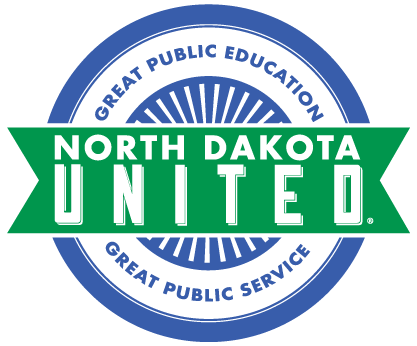North Dakota United is dedicated to providing researched-based, member-driven, relevant, high-quality programs to advance skills, communication, and leadership opportunities. Book studies are typically one credit courses that last approximately six weeks. One credit equates to 15 hours of study. Expectations include reading the book, answering discussion questions, responding to others’ responses, and a reflection paper/action plan.
COST
Book studies are FREE to North Dakota United members.
All participants (members and non-members) are responsible for obtaining the book and the $50 credit fee to UND to have your credit recorded onto your transcript. The fee to participate in an NDU book study for non-members is $100, plus the $50 credit fee to UND.
If you have questions, please contact: amy.flicek@ndunited.org






